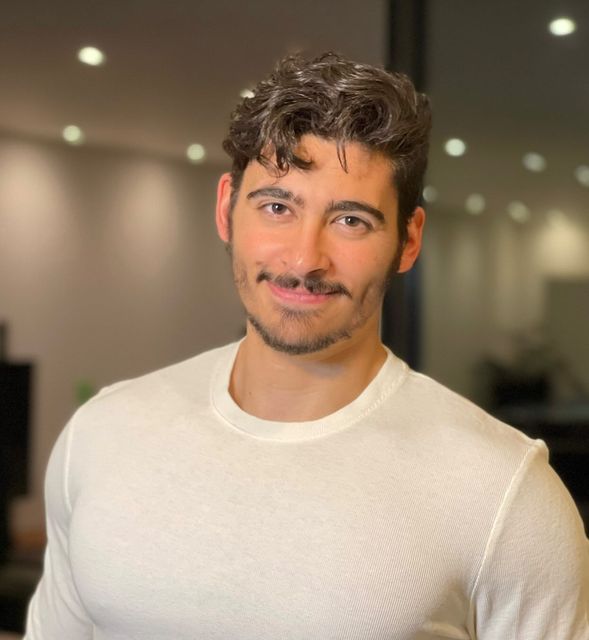With each passing day, we strive to innovate with new developments in computer science, whether machine learning, artificial intelligence, or extended reality. These systems have enormous potential for both technology startups and creative agencies to help produce new opportunities in a digital future. But first, we must think differently.

In just a short time, one tech startup company that has made a massive impact on many people’s lives is the text-to-speech company, Speechify. Speechify’s founder Cliff Weitzman developed the product in 2016 while attending Brown University to help him keep up with his coursework as a dyslexic college student. Speechify was only one of many projects he worked on while at Brown; Weitzman also worked on BoardBrake (a breaking device for longboards) and developed several mobile apps, including WeMap (a discovery engine that helped users find local activities). However, after other students began to ask more about the text-to-speech (TTS) app he was using, Weitzman decided to post a YouTube video about his TTS app. The video has since amassed over half a million views. With evident demand, Weitzman dropped all other side projects and developed and scaled Speechify to a 100-person company that provides 14 different available language options.
Weitzman has stressed the importance of balance when building a company and referenced the four pillars of well-being. This idea looks at health more holistically and pays attention to all the aspects of human health. These pillars can include healthy nutrition, staying active, good sleep, and emotional health. Weitzman explained what he does to stay healthy, “I have four pillars of my life that come before anything else: spending time on love, whether family, friends or significant other. Spending time on learning, typically it’s me listening to audiobooks. Training at the gym, so lifting, eating, good nutrition, that’s the base. That means how intense, difficult, and high-pressure I’m taken care of. Most people also include in this list sleeping; in my case, I only sleep four hours a night. Some people have meditation in there too.” So even if you aren’t building a large business, it’s crucial to make the proper habits as they often lead to creating good health, increased productivity, and reversing lifestyle diseases.
Weitzman also believes that young people can change the world. People like Bill Gates, Steve Jobs, Elon Musk, and Mark Zuckerberg likely contributed to this widespread belief. One explanation for Speechify’s success is Weitzman’s approach to situations and his ability to think differently. Like Steve Jobs enrolling in a calligraphy class at Reed College, which would prove essential with Apple’s attention to detail on Mac’s typography. Weitzman capitalized on Brown’s proximity to the Rhode Island School of Design and enrolled in a few courses to diversify his skill set. The result is Speechify’s distinct brand identity and a clean user interface. So what may have seemed crazy were two planned and calculated decisions by people who thought deliberately. Thinking deliberately is the cornerstone of much of computer science. It uses proven techniques and critical thinking to maximize our thinking time utilizing patterns to tackle challenging tasks. There’s a strong parallel between computer science and evolving technologies and creative ideas.
Creativity has been second nature to Brody Harper, creative director for OneRepublic and founder of the creative agency, TwoSevenTwo. Although Harper always had an interest in the arts and entertainment industry, he tried several different career paths, including working as a production assistant and tour manager, before starting a creative agency at twenty-five years old. Harper recalled how he would work with almost anyone who would write a check during the company’s infancy. However, that quickly changed as his agency’s work and strong relationships allowed him to land contracts with OneRepublic, Honda, The Recording Academy, Josh Groban, MercyMe, MAD TASTY, Christina Perri, and Made in New York Pizza. Since this, Harper has become much more selective about who he collaborates with. Harper mentions, “Typically, it’s either a project I can genuinely get excited about or a person that I have a long-standing rapport with. I do so many different things in the creative space that no day or project looks the same, so if there is something I’ve never done before or someone I’ve never worked with before, I’m more apt to jump in and try something new. Especially if it’s a new exciting idea or challenge that can consume my headspace for a while. Ultimately if it’s a project I can get excited about with people I like being around, I’m in.”
Harper believes that one of the keys to his success has been producing great work promptly. I asked Harper how he knows when a project is completed? He said, “In the book, “Linchpin,” Seth Godin expounded on a famous quote from Steve Jobs where he said, “Real artists ship.” The basic idea is that an incredible amount of good ideas die at the hands of continued tweaking. Everyone has a fear of getting an idea out there and it failing. It needs to be perfect before anyone in the world sees it. While I appreciate quality and the time it takes to create something, I also have learned to focus on meeting deadlines and getting things out the door. Without that last step, it’s just art for art’s sake. Not bad, but no one is paying for that. I’ve started thinking about how my delay of a project tweaking and perfecting is moving the needle. If a tweak or one final fix will help push a project over the top to something special, it’s worth it. But, on the other hand, if it’s just tweaking for my OCD, it’s time to get it out the door and move on to the next. The challenge is knowing the difference.”
The connection between evolving technologies and creative endeavors is displayed through Harper’s agency’s continuous research of new technologies such as blockchain and extended reality implementation, whether on the creative side as non-fungible tokens (NFTs) or business implementation such as smart contracts. It will be exciting to see what Harper’s agency produces utilizing these technologies. Even still, the commonalities between Speechify’s Cliff Weitzman and TwoSevenTwo’s Brody Harper are apparent; they both pour themselves into their upcoming product developments and contracts with people they respect. Additionally, they have found a healthy equilibrium between creativity and evolving technologies, resulting in company growth and flexibility to approach new ideas and solve problems. I think many of us would agree when Harper says, “of course, tons of caffeine doesn’t hurt either.”
